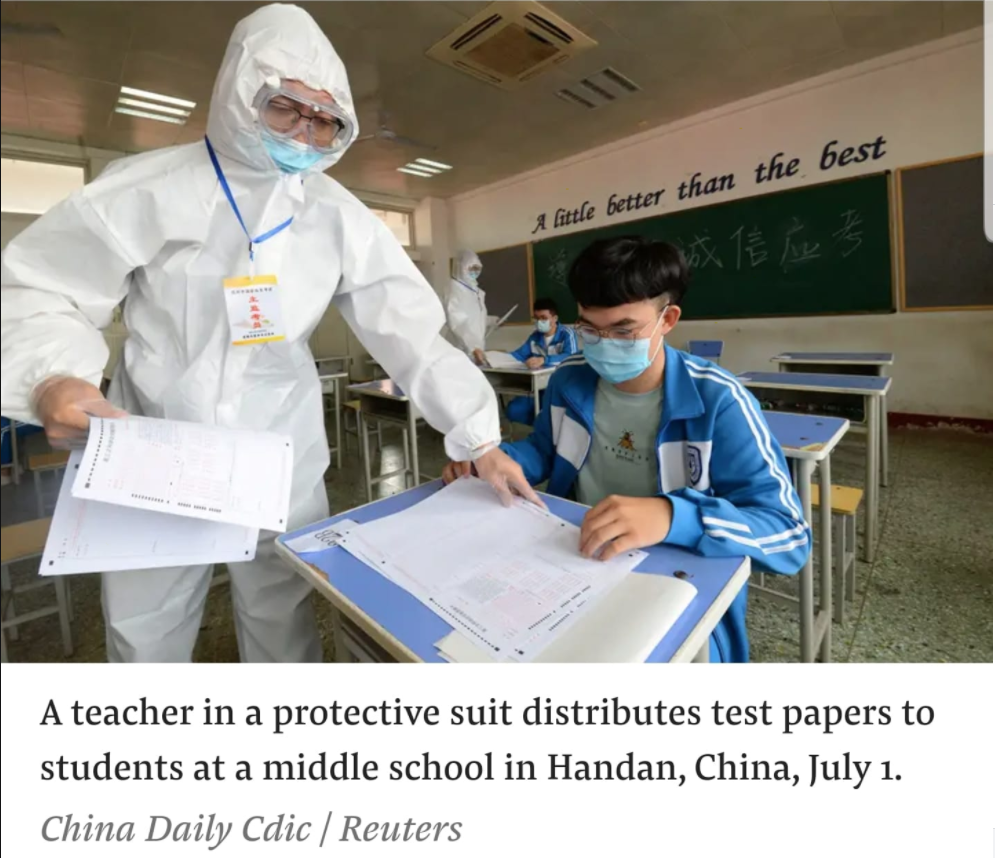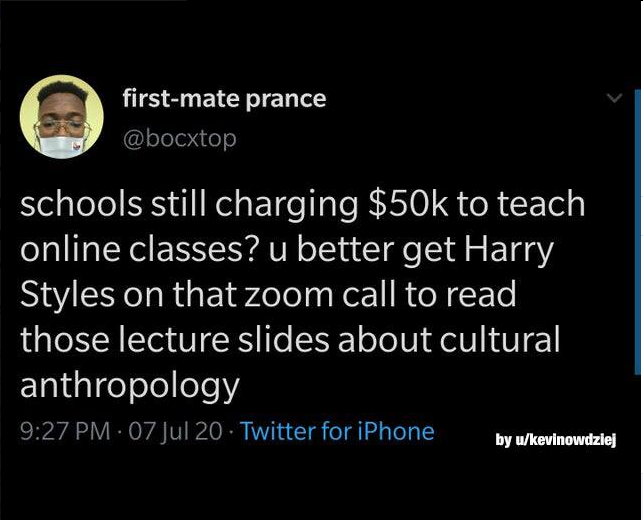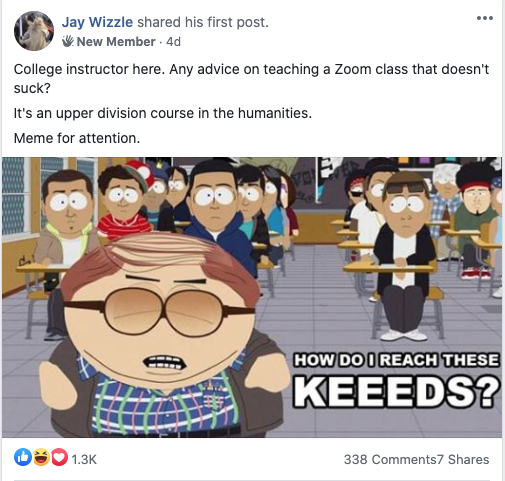As college students prepare for the new 2020-21 school year, the college experience during the time of COVID-19 will be fundamentally altered. Students, professors, parents and college adminstrators are in the midst of an adjustment period, transitioning to a new mode of learning.
Perhaps, for those students attending in-person classes in the U.S., professors will arrive to lecture looking like this:

Whether teachers are worried about transferring illness or contracting illness, so wear additional protective gear, the concerns can distract teachers and students during the already complicated learning process.
Even if teachers and students only wear a mask, voices are muffled, so communicating is more difficult. Professors may need to repeat the same ideas multiple times, requiring greater class time or students may not hear the information correctly, thus remediation at a later time will be necessary.
Yet, for students where distance learning is the norm and may continue living at home, many question the value of their education as they continue paying full tuition, but no longer living and learning at a residential college.

The dismay about the gap between what’s being paid for college and what students are receiving as their college education, can also distract from the learning process. Thus, students may hold professors to a higher than normal standard for each online class, based on the speed in which a professor can transition to a distance learning pedagogy.
As evidenced in the popular meme below, many respondents shared their own angst about online courses, when asked to “Tag Your Professor” and indicate a professor’s effectiveness at distance learning.
In the disruption of the entire higher educational system, some professors are reconsidering their pedagogy to effectively utilize online tools and innovate the educational process.
In my conversation with an academic department chair at a public university in California yesterday, she mentioned discussions with colleagues about how to consciously connect and build relationships with students. She was impressed by the unique ways her colleagues were connecting with students, from building semester-long informal discussion break-outs during the Zoom lectures to showing up 15 minutes early to lecture just to talk with any students.
Other professors have solicited advice in Gen Z online forums, like Zoom Memes for Self-Quaranteens, to ask how to improve online teaching. The thousands of students who’ve responded and the hundreds who actually commented shows the willingness of students and professors to work together, as well as punctuates the need for improvement.
So, amidst the current complexities of navigating college during a pandemic exists the opportunity to reorient the educational process, which if undertaken can improve the quality of higher education. I applaud the professors, administrators, parents and students who are asking questions like, “How do we better educate all students?” and “What is the purpose of education?” and “Why am I attending college?”—all worthwhile reflections to continue attaining the value in education.
For more information about how Jill Yoshikawa, EdM can help college students and parents during the transition to new educational modes of learning, while maintaining the value of a college education, contact us at Creative Marbles Consultancy





